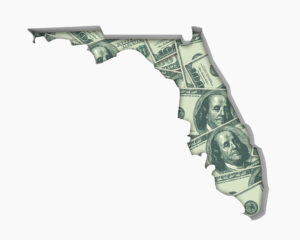What Do You Do When You Owe Taxes But Don’t Have the Funds?
For many people tax season brings the joy of a nice big refund to go out and splurge on something they’ve had your eye on for a long time. On the flip side of the equation are those people who surprisingly, or not, end up owing the IRS money. Not only do these people miss out on the extra cash influx, but they also have to come up with the funds to pay off the extra tax bill.
For some people, depending how high the bill is, they could have to pay even more than just the shortage amount. That’s because many times when people underpay they end up owing penalties for the underpayment. For those who owe a lot of money, those penalties could end up being huge. In fact, the penalties can even be much higher than the shortage.
That’s why it’s always best to try to avoid owing any money to the IRS, especially if you don’t have the funds to pay it off when the tax bill comes due. So what happens to people who can’t pay their tax bill? You do have a few options.
In some cases, it might be a good idea to take out a loan or a line of credit in order to pay off the bill. Of course, you will then be responsible to pay off the loan, so use caution. Another option is to apply for an extension with the IRS. This could buy you a little time to come up with the needed funds. If you need even more time then try applying for a hardship extension, which could give you up to six months to pay it off. You could also ask the IRS for permission to set up a payment plan to pay off the debt in installments.
Whichever path you decide to take, make sure you do something. Don’t ignore the problem or it will only get worse. The penalties will likely increase the longer you wait and the IRS could eventually take other measures or even press charges. So the bottom line is: do something.
Where Is Your Paycheck Going?
While many of the nation’s high net-worth individuals make much of their income through capital gains, those who still collect a paycheck are doling out of cash to the IRS every time they get paid. The same is true for all taxpayers no matter what income level they fall in. In fact, according to a…
Should the IRS File Your Taxes for You?
Imagine a world where you didn’t have to file your own taxes. Of course, you can use an experienced and professional tax and accounting firm like GROCO to do your taxes for you, but what if you didn’t even have to send your tax return information to an accountant? Could that ever really happen? In…
Unstable Stock Market Could Hurt State Tax Budgets
While many feel the wealthy should be paying more in taxes, the efforts to enforce this strategy does have some consequences for state budgets. Many of the country’s wealthiest individuals hold the majority of their wealth in stocks. That means when the stock market goes down, so do the tax payments of the wealthy. In…
Florida Looking to Lure More Wealthy Taxpayers
The reports regarding many of the nation’s wealthy packing up and moving to different states in order to avoid the high taxes where they currently reside continue to mount. According to one such report, David Tepper, the president of Appaloosa Management L.P., who is the wealthiest resident of New Jersey, is in fact no longer…




